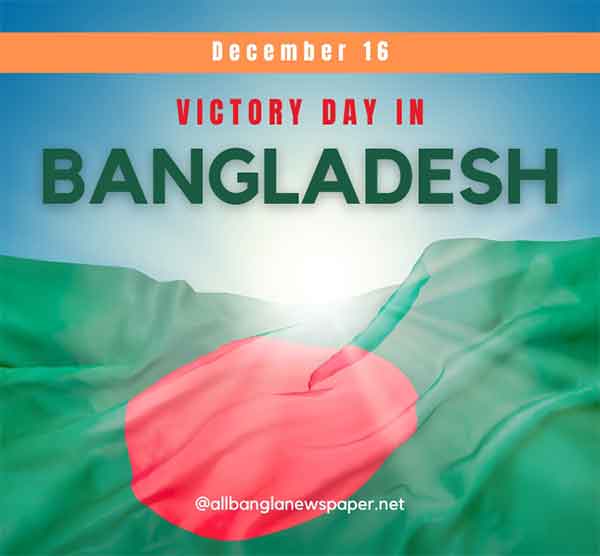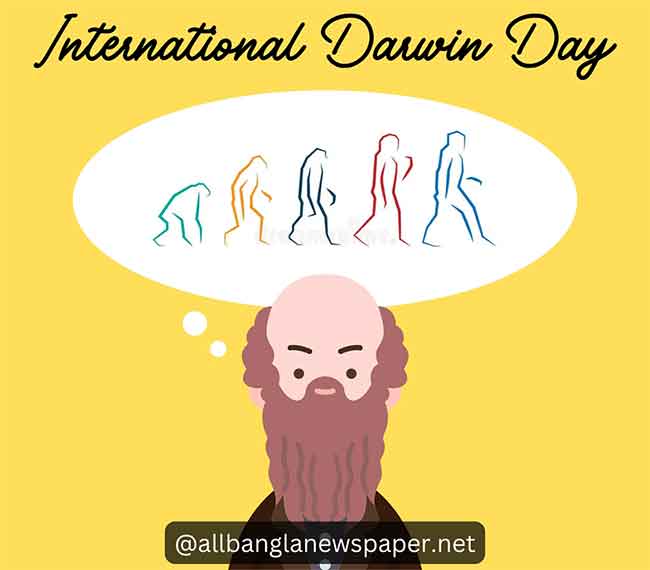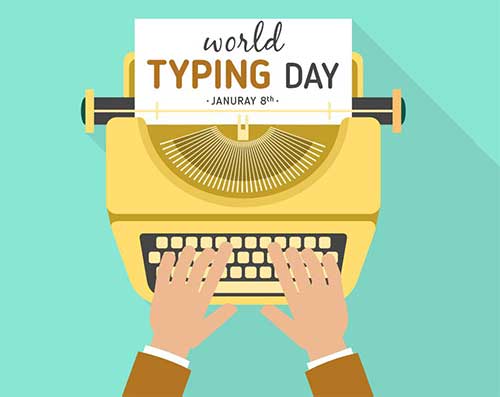
Victory Day in Bangladesh, celebrated annually on December 16, is one of the most significant national holidays in the country. This day marks the historic moment in 1971 when Bangladesh achieved independence after a nine-month-long Liberation War. It commemorates the ultimate surrender of the Pakistani military forces to the allied forces of Bangladesh and India, leading to the creation of an independent Bangladesh.

Historical Background of Victory Day
The seeds of Bangladesh's independence were sown in the early years following the partition of British India in 1947. The people of East Pakistan (now Bangladesh) faced systemic discrimination and political marginalization by the West Pakistani leadership. Over time, these inequalities led to widespread unrest and demands for autonomy.
The Language Movement and Growing Discontent
One of the earliest signs of dissent was the Language Movement of 1952, a protest against the imposition of Urdu as Pakistan's sole state language. The movement, which ultimately led to the recognition of Bangla as one of the state languages, became a symbol of resistance and the desire for cultural identity.
The Road to Liberation
By the 1960s, economic exploitation and political suppression in East Pakistan had intensified. The 1970 general election was a turning point, as the Awami League, led by Sheikh Mujibur Rahman, secured a landslide victory but was denied power by the ruling authorities in West Pakistan.
The situation escalated on March 25, 1971, when the Pakistan military launched Operation Searchlight, a brutal crackdown on Dhaka and other parts of East Pakistan. This marked the beginning of the Bangladesh Liberation War, during which millions of people were killed, and millions more became refugees in neighbouring India.
December 16 1971 The Day of Victory
After nine months of relentless struggle, the war ended on December 16, 1971, when the Pakistani military formally surrendered in Dhaka. General A.A.K. Niazi's signing of the Instrument of Surrender in the presence of Indian and Bangladeshi commanders symbolized the birth of a new nation—Bangladesh.
This historic victory was made possible by the courage of freedom fighters, the leadership of Sheikh Mujibur Rahman, and the critical support of the Indian armed forces. The day remains a testament to the Bangladeshi people's resilience, unity, and determination.
The Significance of Victory Day in Bangladesh
Victory Day is more than a celebration—a solemn reminder of the sacrifices made by millions and the collective spirit that led to independence.
Honoring the Freedom Fighters
Victory Day is a time to honour the brave freedom fighters who risked their lives for the cause of liberation. From young students to farmers and professionals, individuals from all walks of life joined the struggle to secure a free and sovereign Bangladesh.
Remembering the Martyrs
The day also pays tribute to the countless martyrs who made the ultimate sacrifice. The courage and determination of these individuals continue to inspire the nation. The national flag is hoisted as part of the commemorations, and tributes are paid at the National Martyrs' Memorial in Savar.
Celebrations Across the Country
Victory Day is celebrated with great enthusiasm and patriotic fervour throughout Bangladesh. Streets, homes, and public spaces are adorned with red and green flags and decorations, symbolizing the nation's vibrant identity.
National Ceremonies and Events
The day begins with hoisting the national flag at government buildings, schools, and homes. Wreaths are laid at the National Martyrs' Memorial, and military parades are held in Dhaka to showcase the strength and unity of the armed forces.
Cultural Programs and Performances
Cultural programs, including patriotic songs, dances, and theatrical performances, are organized in schools, colleges, and cultural centres. These events highlight the history of the Liberation War and the sacrifices made by the nation's heroes.
Media Coverage
Television channels and Bangla News outlets broadcast documentaries, interviews, and special programs to commemorate the day. These stories keep the memory of the Liberation War alive and educate younger generations about the nation's history.
Martyred Intellectuals Day Honoring the Heroes of Liberation
Victory Day is closely linked to "Martyred Intellectuals Day Honoring the Heroes of Liberation", observed on December 14. This day remembers the intellectuals—professors, writers, journalists, and artists—who were brutally killed by the Pakistan Army and their collaborators just before the war ended. Their loss was a devastating blow to the nation's cultural and intellectual fabric, yet their sacrifice serves as a powerful reminder of the cost of freedom.
The Legacy of Victory Day
Victory Day is a celebration of the past and a call to action for the future. The values of unity, justice, and resilience that defined the Liberation War continue to guide Bangladesh's progress as a nation.
A Growing Economy and Global Presence
Since gaining independence, Bangladesh has emerged as a growing economic power, with significant achievements in industries like textiles, agriculture, and technology. The country's commitment to development reflects the same determination that led to its liberation.
Fostering Unity and National Identity
Victory Day plays a crucial role in fostering national unity and pride. It reminds us of working together to overcome challenges and build a prosperous future for all citizens.
Passing the Torch to Future Generations
Educating the youth about the Liberation War and the significance of Victory Day ensures that the sacrifices of the past are never forgotten. Schools and universities actively engage students in discussions and activities that instil a sense of patriotism and responsibility.
Challenges in Preserving the Spirit of Victory Day
While Victory Day is a time of celebration, it also calls for reflection on the challenges faced by the nation. Issues such as political polarization, economic disparities, and social injustice require collective efforts to uphold the ideals of the Liberation War.
Ensuring the equitable distribution of resources, promoting education, and protecting human rights are essential to preserving the spirit of Victory Day and fulfilling the dreams of those who fought for independence.
A Day to Celebrate and Reflect
Victory Day in Bangladesh is a powerful reminder of the sacrifices, struggles, and triumphs that shaped the nation's history. It is a day to celebrate the achievements of a proud and resilient people while reflecting on the responsibilities that come with freedom.
As Bangladesh continues to progress, Victory Day serves as a source of inspiration and a testament to the enduring spirit of its people. The red and green of the national flag fly high as a symbol of hope, courage, and the promise of a brighter future.
#VictoryDayInBangladesh #BangladeshLiberationWar #December16



